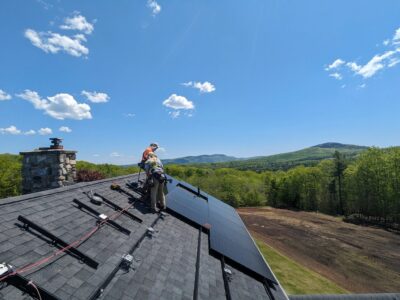The Florida Everglades is one of America’s biggest biodiversity hotspots. It’s also home to the Seminole Tribe, who have lived in these swampy lowlands for generations. As climate change and pollution have affected South Florida, the state is taking action to preserve the homes of alligators, panthers, snakes, iguanas, and various birds.
In April, Florida Gov. Ron DeSantis signed a new bill to use legal gambling income to fund state water management upgrades and the preservation of the Everglades and Lake Okeechobee. Senate Bill 1638 will provide $150 million in repairs and improvements to the Central and South Florida Water Management system.
The agreement will see 96% of the state income generated by the Seminole Tribe Compact, the gaming agreement that the Tribe has with the state, go toward several nature projects.
The Seminole runs all Florida gambling, including online sports betting and casinos.
It’s estimated that the Tribal Gaming Compact generates $750 million in total revenue annually. Around $450 million annually will be allocated toward the Everglades and Lake Okeechobee conservation efforts.
These are key watershed areas for several communities. Improvements to them would restore drinking water supply, said Seminole Tribal chairman Marcellus William Osceola, Jr.

Photo Courtesy South Florida Water Management District
“Today, you probably wouldn’t even think about drinking from those streams. You wouldn’t think about swimming in those streams because you can’t see the bottom, which they could back then,” he said to WFLA NBC 8. “So with this and the funding that we provided through the compact, I hope that we can once do that again for our children’s sake.”
Another $100 million is going toward the Resilient Florida Grant Program. The state-run water infrastructure improvement program funds several projects that help manage ocean erosion, flooding, and sea level rise.
Millions more will go to the Florida Department of Environmental Protection, the Department of Agriculture and Consumer Services, and the Florida Fish and Wildlife Conservation Commission. There will also be a study of Lake Okeechobee by Florida Gulf Coast University Water School, focusing on invasive plant species.
“When it comes to enhancing quality of life for Floridians, these supplemental revenues for flood protection infrastructure and the conservation and maintenance of our natural and working landscapes leave much less to chance,” Dr. Wes Brooks, Florida’s chief resilience officer, said in a news release.
The Seminole gaming compact, signed into law in 2021, has been a money-making machine for the Tribe. It’s supposed to generate $2.5 billion in its first five years and closer to $6 billion by 2030. It’s one of the largest gaming compacts signed in U.S. history.

Photo Courtesy Mark Jacquez
The agreement between the Tribe and the Florida government states that mutually beneficial projects would be funded with gambling revenues. It was also the catalyst for sports betting legalization in Florida.
The Seminole Tribe has lived in the Everglades for thousands of years and still calls it home today. It is known as the “Unconquered People” after successfully evading the army in early 19th-century America. Many communities live in the mangrove forests, traveling by airboat from place to place.
Gambling was brought to Seminole lands in the 1970s. The Tribe has used the money for schools, homes, and other community buildings. Big Cypress Seminole Reservation has the most Tribal members, with more than 600 living in Florida’s largest Native American land. The Seminole owns and operates several casinos, including the Hard Rock International brand.
“Today, most Tribal members are afforded modern housing and health care,” the Seminole Tribe’s official website says.
“The Seminole Tribe spends over $1 million each year on education, alone, including grants-in-aid to promising Tribal college students and the operation of the Ahfachkee Indian School.”
“Over 300 Tribal members are employed by the Seminole Tribe in dozens of governmental departments, including legal and law enforcement staff,” it continued. “Dozens of new enterprises, operated by Tribal members, are supported by both the Tribal Council and Board.”
Florida has felt the effects of climate change in full. Sitting at and even below sea level has put the state at serious risk of further erosion, and some coastal communities already deal with consistent flooding, hurricanes, and land erosion. Improving water management and quality will help all Florida residents, including the Seminole.





